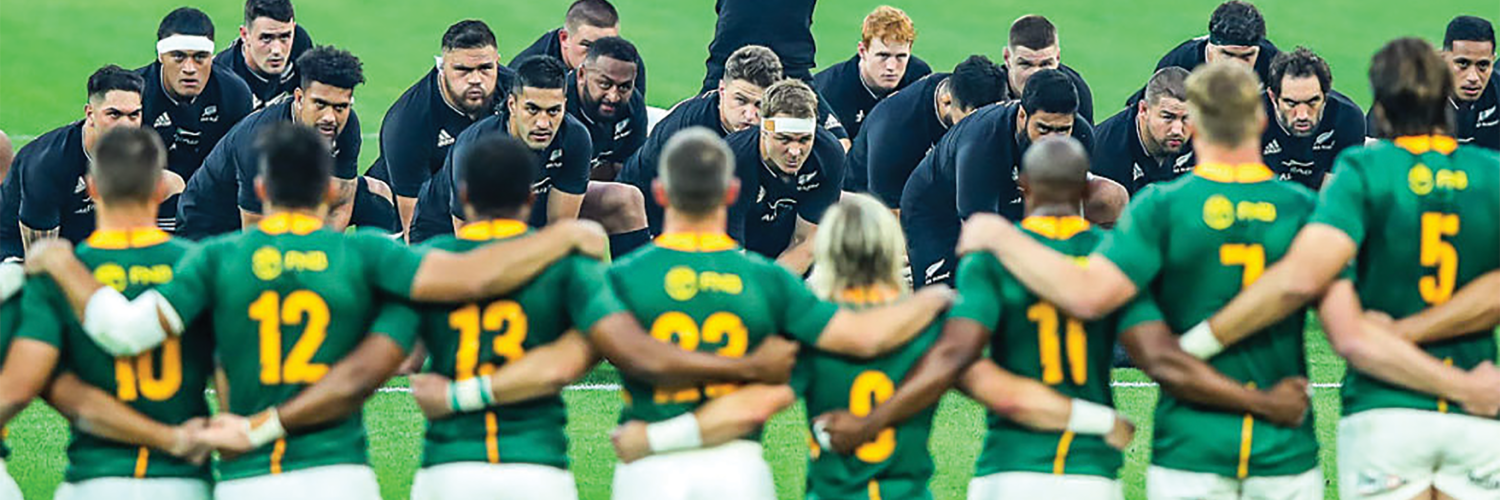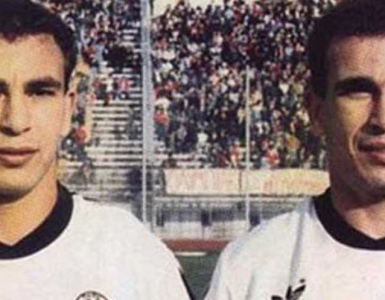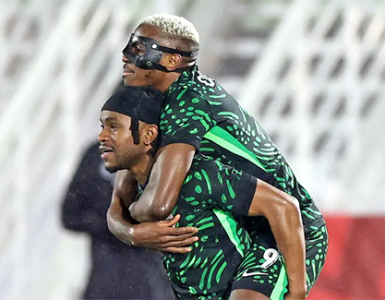Wrc final: The initial 20 minutes could prove crucial between Boks and the All Blacks
By Sports Reporter
The Springboks’ want to make a mess of All Blacks coach Ian Fosters’ farewell party by throwing a heavy blanket over his team’s attack in the World Cup final in Paris on Sunday morning (NZT).
Despite their contrasting styles in the semifinals last weekend, the assistant coaches from both teams agree the first 20 minutes could prove crucial at Stade de France.
Springboks assistant coach Daan Human said his team, which is aiming to retain the Webb Ellis Cup, hadn’t forgotten the All Blacks’ remarkable start in Auckland on July 15, when they darted out to a 17-0 lead in the opening 12 minutes, and held on to win 35-20 at Mt Smart Stadium.
The Springboks humiliated the All Blacks in London in late August, cruising to an historic 35-7 win at Twickenham to avenge the earlier defeat in the Rugby Championship.
“A good start is always a good thing, but it’s important to finish well too,’’ Human said.
“Rugby matches are won in 80 minutes, but we know the All Blacks like a fast start, and we’ll work on that. In our first game against them this year, they built up a 17-0 lead in the first 20 minutes, and we managed to change things in the second match (in London).’’
The final will be Foster’s last game in charge of the team he has coached since 2020, with NZ Rugby having already installed Scott Robertson to take over next year.
The All Blacks’ defeat to the Springboks in London was followed by a 27-13 loss to France in the tournament opener in Paris on September 9. Since then, however, the All Blacks have supercharged their attack and proved capable of scoring from all sections of the paddock.
Following the defeat to France, the All Blacks swept aside Namibia, Italy and Uruguay in their pool games and beat Ireland 28-24 in the quarterfinal. Last weekend they knuckled Argentina by belting them 44-6 in the semi.
The Springboks, meanwhile, got dragged into a roll-in-the-dirt struggle with England in their semi and required Handre Pollard to kick a 50m penalty on the angle to secure a heart-racing, if dull, 16-15 victory.
Two great foes, with different styles.
The All Blacks won’t be complacent. If they are, they may as well not bother catching the bus to Stade de France. Yes, the Springboks could resort to leathering the ball into the sky, but they also have a couple of zippy, and quick, wings in Cheslin Kolbe and Kurt-Lee Aredse.
Both love to chase high kicks, and if the ball bobbles their way the last line of defence may as well wave the white flag.
All Blacks defence coach Scott McLeod said the opening 20 minutes will be more than a softening-up period; they, like the Springboks, want to be in top gear from the moment English referee Wayne Barnes rings the opening bell.
“It’s no secret both sides will be focusing on the first 20 minutes, I would imagine,’’ McLeod said. “It’s who can execute with accuracy. We have talked about that this morning. We need to be extremely accurate, show pictures that we want to show and be able to apply pressure at the same time.
“The Boks have always come out wanting to start well, and we will take our lessons from Mt Smart and want to do the same.’’
WERE THE ALL BLACKS POISONED IN ‘95?
ALLEGATIONS: Half the team were vomiting and had diarrhoea with the urns of tea and coffee fingered later as the source of the illness
By Sports Reporter
In 2016, the Herald’s rugby writer Wynne Gray interviewed players, coaches and management from both the All Blacks and Springboks looking back on the 1995 final and to get to the bottom of reports the New Zealanders were poisoned on the eve of the game. This week the two sides will meet again in a World Cup final.
The etching on the Webb Ellis Cup will always say South Africa won the title in 1995 but the spectre of whether the All Blacks were poisoned on the eve of that match will not go away.

congratulating Boks captain Francois
Pienaar after winning the Rugby World Cup
at the Ellis Park stadium in 1995
All Blacks coach Laurie Mains was adamant afterwards his side, who were affected in their 15-12 extra-time defeat to the Springboks, were poisoned by a waitress who has become known as “Suzie”. He even hired a private investigator to try to get to the bottom of the matter.
“My wife knew a private investigator in South Africa and, after we came home, we contacted him and asked him to see what he could find out, if anything, because I knew all the doors would be shut,” Mains told the Herald in 2016. “He had moderate success and did establish a black lady had been employed by the hotel two days before we arrived and that day after we got sick, she disappeared completely.”
Several months later, Mains gets word from financial contacts in London that bookmakers are behind the incident. He doesn’t get much further and does not want the immense disappointment to infest his life.
“I would have loved to have won that World Cup for New Zealand rugby but it wasn’t to be,” he said.
All Blacks deliberately ‘poisoned’ at 1995 Rugby World Cup, says Nelson Mandela’s bodyguard
Everything had been on track until two days before the final, when Mains and manager Colin Meads began to feel unwell when out at dinner with those not playing in the final. When they got back to the hotel, they found Richard Loe being ill in the garden and in the foyer, Zinzan Brooke, who did not have a good message about others.
Half the team were vomiting and had diarrhoea. The urns of tea and coffee the team drank from at lunch were fingered later as the source of the illness.
Team doctor Mike Bowen recalled how Mains felt they “might be tampered with and as it turned out, he was absolutely right”.
The next day the All Blacks’ management held a meeting in Meads’ room because he was too ill to move far. They talked about calling off the match but decided to keep the issue quiet.
”I was the one who said we don’t have to tell anyone,” Mains told the Herald in 2016. “I didn’t want South Africa to know we were crook. It was the worst thing I did.”
Bowen managed the emergency on his own, which he rated as the most stressful in his lengthy sports medicine career. There were no extra All Blacks medical staff and they did not want to alert their rivals to their plight.
“It was unlikely to have been something that occurred incidentally or without some provocation but I have no way of proving that was the case,” Bowen told the Herald in 2016. Campaign manager Sir Brian Lochore, who passed away in 2019, recalled the dinner when they might have been poisoned.
“I was just going into the dining room and they said, ‘no, no, the All Blacks are in this room over here’. I went, ‘I thought we were having our meal over here’ and they said, ‘no, no, there’s a room over here for the All Blacks’ and I thought that was strange.” On the morning of the final, the All Blacks were better but lacked energy and at altitude, that hurt.
“If you had asked me what the score was going to be on the Saturday morning, I thought about 30-0 to South Africa, Lochore told the Herald.
“I don’t think any of them will ever get over it because, if you can’t play to the best of your ability on any given day because of some outside influence – and I’m not pointing the finger at anyone – it’s always going to bug you forever.”
During the game, Lochore noticed the All Blacks were trying to create things too quickly, as if they couldn’t concentrate or feel they were not going to last. It was a crushing and unsatisfying end to so much hard work.
As he took his seat among the rising volume of noise at Ellis Park, Mains pondered the injustice. His All Blacks troops gave him some hope.
“Every one of those players, and many were fearfully ill during that game, showed great courage. I had high regard for them anyway but what they did in that game stepped them up further in my admiration,” he said.
Referee Ed Morrison had few clues about the All Blacks drama. He wondered why Steve McDowall was sweating profusely after a few scrums and then watched Jeff Wilson being sick but it was only after the test, in conversation with Mains, he discovered the situation.
“Credit to Sean Fitzpatrick, he never mentioned it or made any excuses or brought it to my attention and I will always be grateful for that,” Morrison told the Herald in 2016. Mains said in 2016 he would probably still love to find out exactly what happened but, equally, has tried to let go.
“If you let this sit inside you and you let setbacks and disappointments sit with you, it will eat you up,” he said. “But I’m not one of those people.”

































